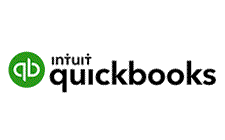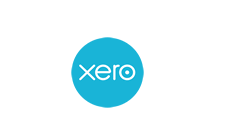Is there a better option than the scale charge?
HMRC announced revised CO2 emission scale charge rates for private road fuel from 1 May 2024. But is there an alternative way of accounting for VAT on the private fuel used for your business vehicles?

Basic rules
Input tax can be claimed on any expense that you incur for your business if it relates to your taxable sales, including those that are zero-rated. There are some expenses that are blocked by the legislation, such as business entertaining expenses for non-staff, and a claim must be reduced for any private, exempt or non-business use. It is the private use factor that is relevant for your road fuel expenses.
How does the scale charge work?
The advantage of the scale charge system is that you can claim input tax on all road fuel you buy for your business cars, irrespective of whether some fuel is subsequently used for private trips. You will account for a fixed amount of output tax on each return, which is based on the CO2emissions of your cars.
Example. The charge for a car emitting 135g/km is £297 if the business submits quarterly returns and £98 for monthly returns. These figures including VAT, i.e. output tax = £297 x 1/6 for a business submitting quarterly returns.
The latest HMRC rates (seeThe next step) apply to returns beginning on or after 1 May 2024 i.e. the July 2024 quarters and later. The previous rates will still apply to your June 2024 return if you submit calendar quarter returns.
You cannot mix and match your business cars. In other words, if you opt to use the scale charge method to account for VAT on your private fuel, you must use it for all of your cars.
Alternative method: mileage splits
You may find that the scale charge system penalises your business. In some cases, the output tax with the scale charge can exceed the total input tax claimed on road fuel in a period. You then have two options:
- elect to claim no input tax on any road fuel expenditure; or
- instruct your employees to keep a detailed log of all their business and private trips, and apportion your input tax based on the percentage splits.
Example. If your business mileage in Vehicle A is 3,000 in a quarter and 1,000 is for private trips, you will claim 75% of the input tax on your road fuel purchases for this car.
If you elect to claim no input tax on road fuel, this exclusion applies to all vehicles, i.e. vans and lorries as well as cars.
Employee purchases of fuel
If you pay your employees a mileage rate for using their own vehicles on company business, you can claim input tax on the part of the payment that relates to fuel. The employees must attach petrol receipts to their claims, to prove that VAT has been paid on their fuel purchases. HMRC publishes quarterly road fuel mileage rates, which are optional but very accurate. These rates vary according to the cc of the engine and whether the fuel is petrol or diesel. For example, the rate for a car using petrol is 14p per mile if the vehicle is 1,400cc or less. This rate includes VAT, so input tax will be 14p x 1/6 per mile with 20% VAT.
The advisory rate for fully electric cars is 8p per mile including VAT. Hybrid cars are treated as either petrol or diesel cars for advisory fuel rates.
Related Topics
-
Reduce tax on your shared company car
If you and your spouse or partner work for the same business and you share a company car, you might be paying too much tax. Why, and how can you reduce it?
-
Latest advisory fuel rates for company car drivers
The amount that employees can be reimbursed for business travel in company cars changed from 1 September 2024. What are the new rates?
-
Boost cash flow with a CT refund?
Your company made a loss in its last financial year and is badly in need of an injection of cash. How can you turn the loss into a corporation tax refund, and what steps can you take to obtain this at the earliest possible date?






 This website uses both its own and third-party cookies to analyze our services and navigation on our website in order to improve its contents (analytical purposes: measure visits and sources of web traffic). The legal basis is the consent of the user, except in the case of basic cookies, which are essential to navigate this website.
This website uses both its own and third-party cookies to analyze our services and navigation on our website in order to improve its contents (analytical purposes: measure visits and sources of web traffic). The legal basis is the consent of the user, except in the case of basic cookies, which are essential to navigate this website.